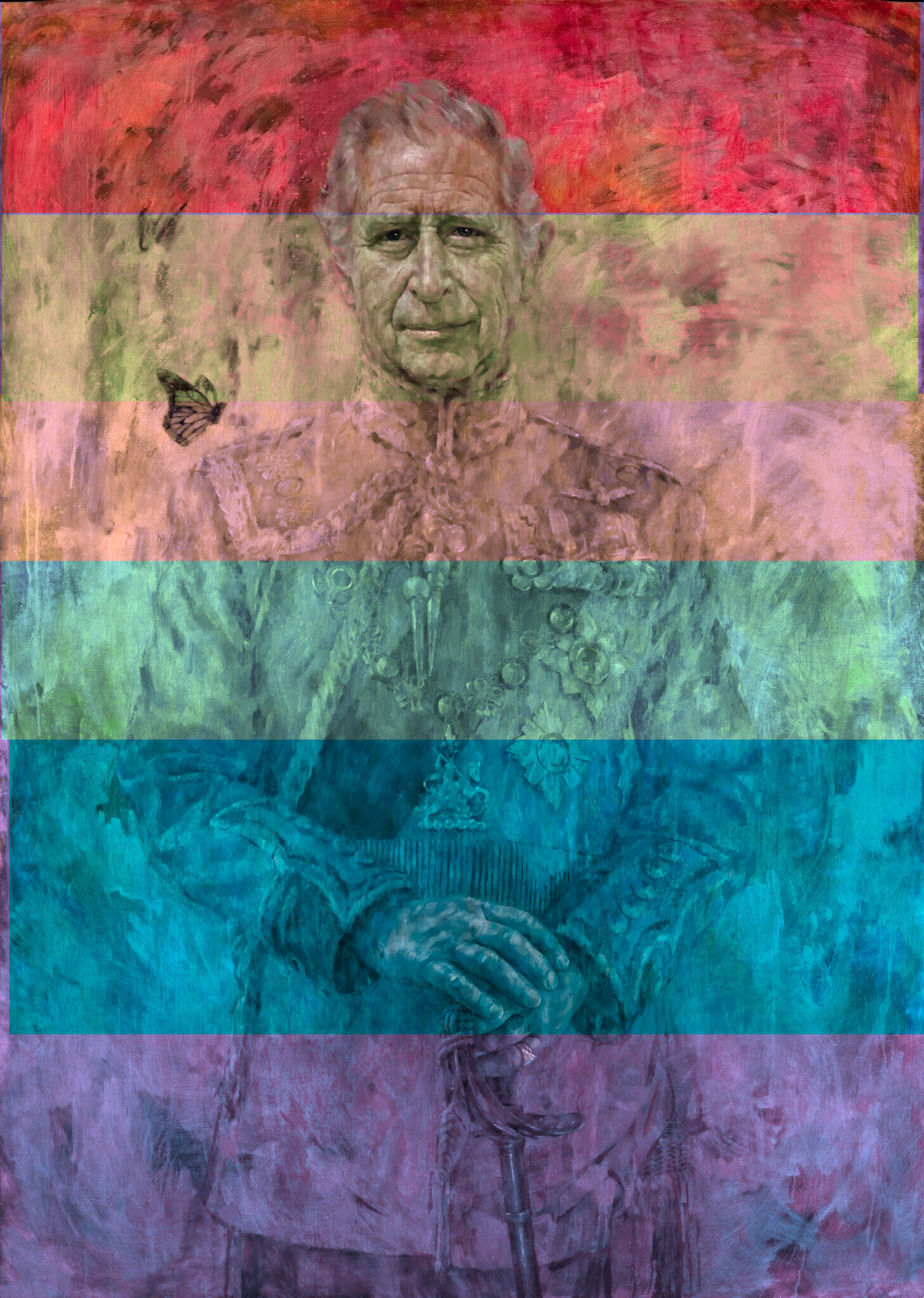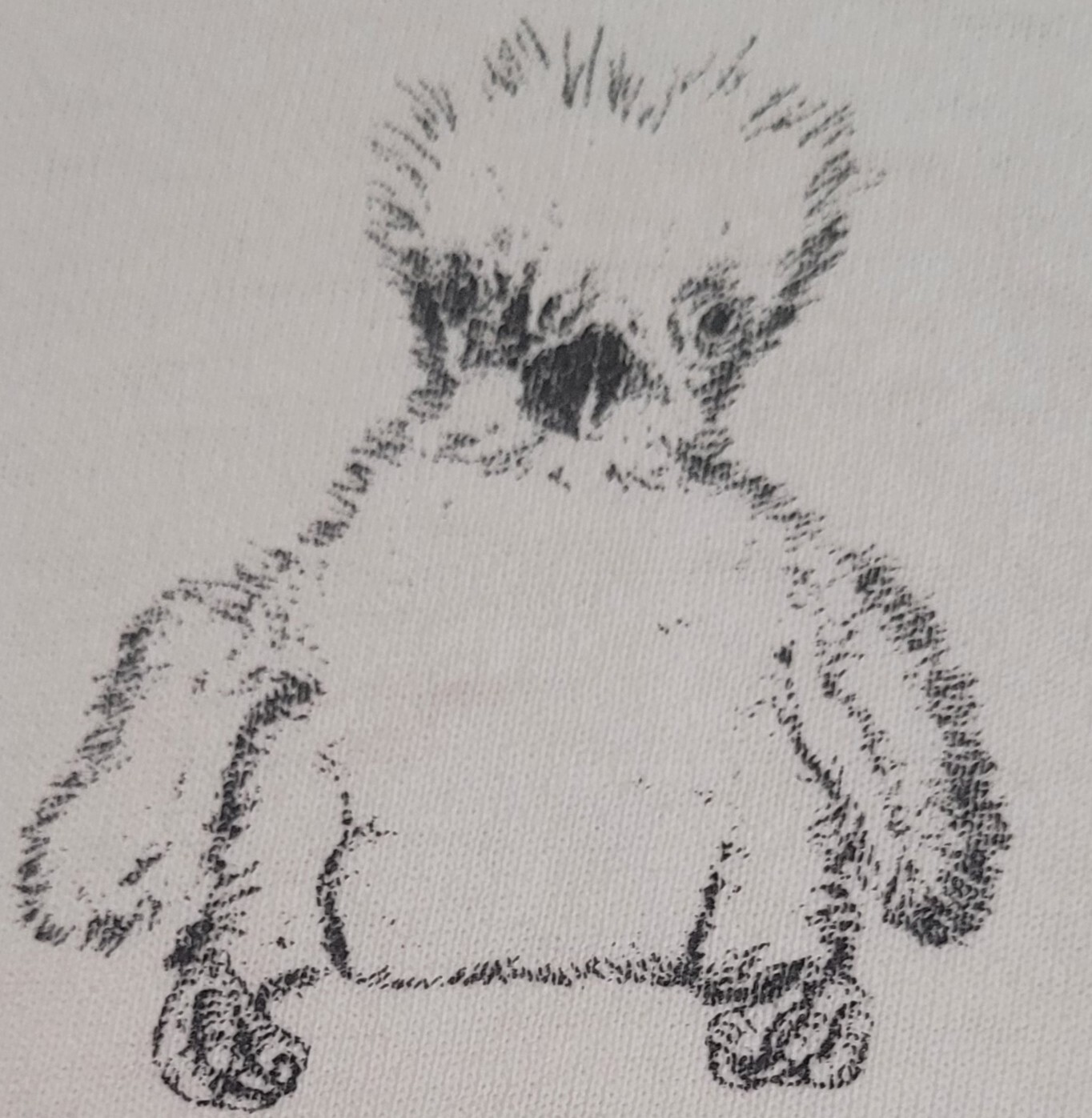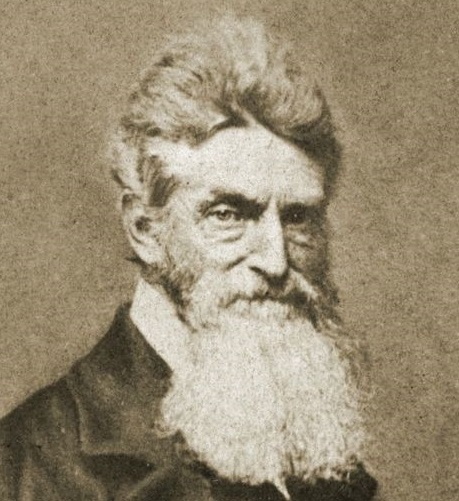On this day November 7th in 1917, the October Revolution began in Russia when the Bolsheviks initiated an armed insurrection in Petrograd, seizing the Winter Palace and dissolving the Provisional Government in a coup with minimal violence. The name “October Revolution” comes from the fact that the revolution began on October 25th in the dating convention of the time.
The October Revolution was the culmination of popular sentiment directed against the provisional government which was achieving little for the majority of people to change Russia from its Tsarist past. In particular, the unelected body continued to participate in the very unpopular First World War opting in July for participation in further military campaigns which provoked outrage amongst soldiers and workers alike.
After the February Revolution which established the Provisional Government, during the period of the Dual Power (February-October 1917), the Bolsheviks gradually gained in strength and influence especially in the soviets and in the army after July. The Bolshevik slogan ‘Peace, Bread and Land’ summarised their programme and was increasingly popular. They established their headquarters in the Smolny Institute. This was a former girls’ convent school which also housed the Petrograd Soviet. The Provisional Government now headed by Kerensky, was still officially in power and under pressure from the nobility and industrialists, Kerensky was persuaded to take decisive action against the Bolsheviks. Thus, on 22nd October he ordered the arrest of the Bolshevik Military Revolutionary Committee (MRC). The government was aware of the unstated purpose of the MRC, established on 12th October and led by Trotsky. The purpose of this committee, created by the Bolsheviks within the Petrograd soviet, was to prepare for armed insurrection against the government. The next day, 23rd October, the government attempted to close down the Bolshevik newspapers and cut off the telephones to the Smolny Institute. However, soldiers and Red Guards ultimately thwarted all Kerensky’s plans.
Following this, a long debate took place at a secret meeting of the Bolshevik Central Committee. At this meeting the main issue centred around Lenin’s proposal that the Bolsheviks should take action before the elections for the Constituent Assembly; in other words, the socialist revolution should proceed without delay. Zinoviev and Kamenev dissented, hence the importance of the MRC which had already deployed commissars to all garrison units. In essence this was both a measure of defence and, at the same time, a preparation for attack
Thus, orders were given for the Bolsheviks to occupy the railway stations, the telephone exchange and the State Bank. In the early morning of October 25th, armed workers started occupying key points of Petrograd, in conjunction with pro-Bolshevik sailors pulling into the city’s harbour. Power stations were seized and strategic bridges were held. These instances produced very little resistance and were not met with violence.
A blank shot from the Cruiser Aurora in the evening signalled the siege of the Winter Palace, which was to be the final offensive of the revolution. Crowds of Red Guards and insurgents surrounded the palace and secured entry, leading to the surrender of the remaining government officials in the early hours of the morning. Members of the Provisional Government that had not already fled the capital were imprisoned. Kerensky had managed to escape from the city.
Crowds of Red Guards and insurgents surrounded the palace and secured entry, leading to the surrender of the remaining government officials.
The revolution itself was brief, being almost entirely peaceful in its execution. Posters were distributed across the city declaring that “the Provisional Government is overthrown” and “Long live the Revolution of Workers, Soldiers and Peasants!” Lenin emerged from the revolution as one of its most notable strategists and a potential leader in the new era.
On 26th October 1917, the second All-Russian Congress of Soviets met and handed over power to the Soviet Council of People’s Commissars. Lenin was elected chairman and other appointments included Trotsky (Foreign Affairs). Two decrees were adopted at the first session: the Decree on Peace, which moved to start negotiations to withdraw from the war in order to bring about “a just and democratic peace,” and the Decree on Land, which moved to transfer land away from landowners and the church to peasant committees. ‘Peace, Bread and Land’ was thus transformed from a slogan into a living reality. In addition, the Council of People’s Commissars nationalised the banks and workers control of factory production was introduced. The army was demobilised and in December and the Soviet Government announced that it planned to seek an armistice with Germany. In December 1917, Trotsky led the Russian delegation at Brest-Litovsk to negotiate peace terms with representatives from Germany and Austria-Hungary.
Thus it was that the full Bolshevik programme, as outlined in Lenin’s ‘April Theses’ was implemented within three months of the successful socialist revolution.
Megathreads and spaces to hang out:
- 📀 Come listen to music and Watch movies with your fellow Hexbears nerd, in Cy.tube
- 🔥 Read and talk about a current topics in the News Megathread
- ⚔ Come talk in the New Weekly PoC thread
- ✨ Talk with fellow Trans comrades in the New Weekly Trans thread
- 👊 Share your gains and goals with your comrades in the New Weekly Improvement thread
- 🧡 Disabled comm megathread
reminders:
- 💚 You nerds can join specific comms to see posts about all sorts of topics
- 💙 Hexbear’s algorithm prioritizes comments over upbears
- 💜 Sorting by new you nerd
- 🌈 If you ever want to make your own megathread, you can reserve a spot here nerd
- 🐶 Join the unofficial Hexbear-adjacent Mastodon instance toots.matapacos.dog
Links To Resources (Aid and Theory):
Aid:
Theory:
History has now confronted us with an immediate task which is the most revolutionary of all the immediate tasks confronting the proletariat of any country. The fulfilment of this task, the destruction of the most powerful bulwark, not only of European, but (it may now be said) of Asiatic reaction, would make the Russian proletariat the vanguard of the international revolutionary proletariat. And we have the right to count upon acquiring this honourable title, already earned by our predecessors, the revolutionaries of the seventies, if we succeed in inspiring our movement, which is a thousand times broader and deeper, with the same devoted determination and vigour.
Lenin, What Is To Be Done?, “Criticism in Russia” (1901)
-
🐶 Join the unofficial Hexbear-adjacent Mastodon instance toots.matapacos.dog
-
🌈 If you ever want to make your own megathread, you can go here nerd
@aaaaaaadjsf@hexbear.net @Acute_Engles@hexbear.net @anarchoilluminati@hexbear.net @AntiOutsideAktion@hexbear.net @Alaskaball@hexbear.net @asa_red_heathen@hexbear.net @ashinadash@hexbear.net @autismdragon@hexbear.net @Awoo@hexbear.net @bbnh69420@hexbear.net @BountifulEggnog@hexbear.net @buh@hexbear.net @Cherufe@hexbear.net @ClimateChangeAnxiety@hexbear.net @Comp4@hexbear.net @context@hexbear.net @corgiwithalaptop@hexbear.net @Cowbee@hexbear.net @CrispyFern@hexbear.net @CriticalOtaku@hexbear.net @CyborgMarx@hexbear.net @Dirt_Owl@hexbear.net @Dolores@hexbear.net @drinkinglakewater@hexbear.net @ElChapoDeChapo@hexbear.net @ElGosso@hexbear.net @EmmaGoldman@hexbear.net @EstraDoll@hexbear.net @FALGSConaut@hexbear.net @Frank@hexbear.net @Frogmanfromlake@hexbear.net @FuckyWucky@hexbear.net @FumpyAer@hexbear.net @GalaxyBrain@hexbear.net @gay_king_prince_charles@hexbear.net @Grownbravy@hexbear.net @GVAGUY3@hexbear.net @HarryLime@hexbear.net @hexaflexagonbear@hexbear.net @InevitableSwing@hexbear.net @Infamousblt@hexbear.net @iridaniotter@hexbear.net @Josephine_Spiro@hexbear.net @kristina@hexbear.net @LesbianLiberty@hexbear.net @LocalOaf@hexbear.net @MaxOS@hexbear.net @magi@hexbear.net @Mindfury@hexbear.net @mkultrawide@hexbear.net @Moss@hexbear.net @Nakoichi@hexbear.net @PaulSmackage@hexbear.net @PaX@hexbear.net @plinky@hexbear.net @PorkrollPosadist@hexbear.net @Ram_The_Manparts@hexbear.net @ReadFanon@hexbear.net @RedWizard@hexbear.net @RION@hexbear.net @RNAi@hexbear.net @Rojo27@hexbear.net @SeventyTwoTrillion@hexbear.net @SorosFootSoldier@hexbear.net @Sickos@hexbear.net @Sphere@hexbear.net @take_five_seconds@hexbear.net @Teekeeus@hexbear.net @Tervell@hexbear.net @VHS@hexbear.net @viva_la_juche@hexbear.net @WhatDoYouMeanPodcast@hexbear.net @Wheaties@hexbear.net @WhyEssEff@hexbear.net @WIIHAPPYFEW@hexbear.net @wtypstanaccount04@hexbear.net @wombat@hexbear.net @Zoift@hexbear.net
@CARCOSA@hexbear.net @liberal@hexbear.net @ella@hexbear.net @all_or_nothing@hexbear.net @KenBonesWildRide@hexbear.net @KiraNerys@hexbear.net @TomboyShulk@hexbear.net @DuckNuckem@hexbear.net @SapGreen@hexbear.net @Zangief@hexbear.net @scumlord@hexbear.net @COMMENT@hexbear.net @Antisocial_Socialist@hexbear.net @DOPESMOKERDENG@hexbear.net @BoarAvoir@hexbear.net
No current struggle session discussion here on the new general megathread, i will ban you from the comm and remove your comment, have a good day/night :meow-coffee:
First
ok i pull up
Ok I pull up
First

first
Forst
Fist
Hola hola hola
-
Something just clicked for me. Liberals doing absolutely nothing about Palestine was already baked in when they did absolutely nothing about the Uighurs, even though they 100% believed that Uighurs were being ethnically cleansed. All they know is getting a hashtag going. No action.
The most damning thing about Harris campaign is that less republicans voted for Kamala than they did for Biden in 2020. Fucking infuriates me that appealing to republicans was even a talking point.
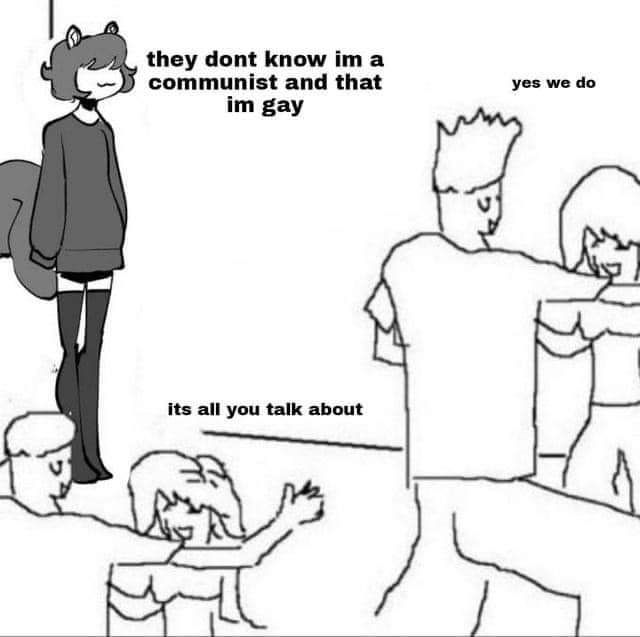
Talking with a girl I have a bit of a crush on at work
Me: “…Technically it’s due on Friday but I’m getting you to it literally the day before, so if it takes till next week I’m not gonna break down your door or anything.”
Her: “Shame, I was looking forward to that.”

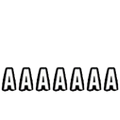
I won’t bother linking the article, but it was darkly amusing to see, literally the morning after Harris’s loss, the NYTimes put out an article about how, actually, inflation was a pretty big problem after all, and maybe the administration could’ve done more to assuage people’s frustration about price increases.
OOOOOPS


Libs mad lol
Yo what did moo deng do
She predicted Trump would win by choosing an apple or something lmao
libs upset that a pygmy hippo has better political nous than them
Trump’s victory was obvious since Biden got diagnosed by the public with dementia
Kamala’s lack of involvement and shitty policies certainly didn’t help

Leave the hippos out of this.
Leave modang out of this!
Googling your name + “the Hedgehog”
Most people:



Dude named “Sonic”:


lol even bri is on his ass
If biden pardons the trump assassin I will vote for him in 2028
The topic of intersex people/atypical sex chromosomes came up while talking with my wife today, near the end of the conversation I mentioned that Vin Diesel was triple X and she took it seriously so I had to explain the joke lmao
Car city this, bikes that, how about we design a skateable city. Tony Hawk Pro Skater inspired urban planning
Have a friend who broke up with her boyfriend in part because of how he voted (RFK not Trump lmao) although it wasnt the entire reason, more like the final straw. Hopefully there are thousands more dipshit young men facing the same dilemma right now (if thet voted for Trump anyway)

It’s 12:20 AM and I’m currently engaged in psychological warfare with a huge whitetail buck who really wants to get in my yard to presumably scrape the everloving fuck out of my trees with his antlers (specifically my endangered American elm). I’ve chased him out twice in the last half hour and now he keeps coming back and peering over the fence, looking for me in the yard. I’m hiding on the porch so I can run out and throw a big stick at him the second he jumps over.
Find some other trees, bro, they’re literally growing out of the ground all over the place.
Feral boy autumn.




